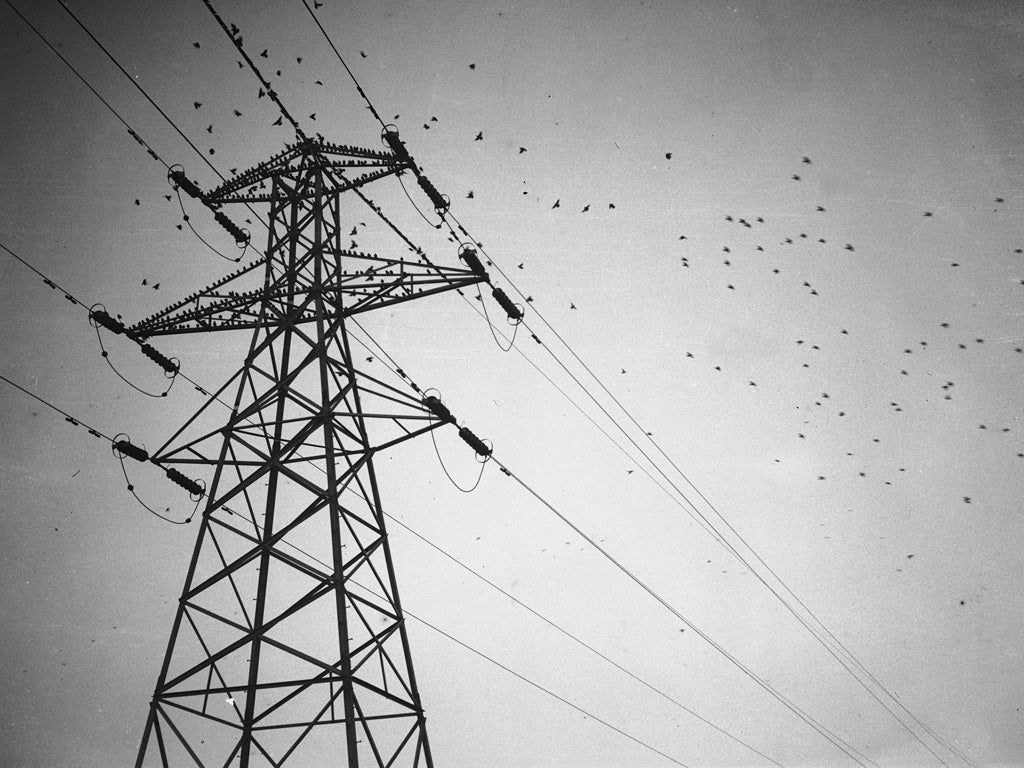Energy prices – you ain't seen nothing yet
Politicians must be honest with us; come what may, prices will keep on rising

At teatime tomorrow the amount of electricity being used in the UK will soar to its peak of the week – around 49,000 megawatts will surge through the grid as people go home to switch on the lights and cook supper. It's also when the trains are at their busiest, while offices and shops are still burning lights and heating at full pelt.
You can see the live numbers in real-time online at BM Reports, part of the National Grid. More pertinently, BM's statistics also show where the electricity comes from: based on my Friday night viewing, around 38 per cent is powered by coal, some 20.4 per cent comes from gas being pumped in from Norway and Russia, 14 per cent from wind (a record), about 19.7 per cent from nuclear, and the rest from hydro and tidal sources.
Yet Monday's snapshot of energy supplies would have looked dramatically different only a few years ago; there's more electricity coming from coal now – it's so cheap that generators have switched to the dirtier fuel and gas plants mothballed. Until recently, about 25 per cent came from nuclear.
That Monday picture is set to change again beyond recognition as the UK has signed up to the EU carbon directive to run down all its coal-fired stations by 2020 – that's a whopping 40 per cent of capacity that has to be replaced. At the same time, the output from nukes will fall to tiny levels as plants are phased out. The new Hinkley Point will take another decade to come on stream.
So there's a huge potential shortfall in supply. Energy costs have already risen over the past few years, so for many they now reach a third of income. But what politicians of all parties are not telling us that they will keep rising.
Peter Atherton, energy analyst at Liberum Capital, reckons that without new investment it may be impossible to keep the lights on and consumer bills affordable. He predicts electricity bills could rise by at least 30 per cent by 2020 and 100 per cent by 2030.
And the cost of keeping the lights on? Well, on Atherton's estimates, it's a cool £161bn from now to 2020 and up to £376bn by 2030 – currently the National Grid is spending £25bn on renewing infrastructure to bring new wind and nuclear into the network.
So here's the rub. Who's going to pay? To get these levels of investment, the Government needs to incentivise new generations of power stations and shake up competition, which is what it hopes to achieve with the new Energy Bill being passed this month.
Yet will the Big Six generators including Centrica, SSE, RWE and E.on be willing to invest following the flak they have been getting over alleged profiteering? Apart from Centrica, they are foreign-owned so decisions on new UK investment are made overseas.
It didn't receive much publicity, but in October the Royal Academy of Engineering prepared a report into the UK's electricity margin capacity for the Council for Science and Technology, which warned of shortages next winter and potential price rises: "Achieving decarbonisation and security of supply within a system that is ageing and due for renewal is likely to result in an increase in the unit cost of electricity."
Indeed, Sir John Parker, president of the RAE and ex-chairman of the National Grid, tells me the capacity margin could reduce to a level that puts security of supply at risk, particularly if various stress factors were to coincide with the peak of system demand. As well as recommending short-term measures to boost capacity, the report suggested the Government has a "constructive dialogue with the public about the nature of energy challenges". Translated from official-speak, that means have an intelligent debate and tell them that energy prices will rise again. In other words, you ain't seen nothing yet.
So what's to be done to avoid such a crisis? Should the Government be investing in more new nuclear rather than paying a fortune to the foreigners to do so for us? Can we jump-start renewable technologies by bigger tax-breaks for solar and biomass and kick-start a local energy revolution by encouraging local communities to generate power as they do in Germany? Should shale gas frackers be forced to offer local communities a big share of their profit? All such solutions will take time, but the answer is probably yes. There should also be more investment going into developing the new breed of nuclear reactors like those being worked on by the Norwegians using thorium. More needs to be done on the supply side too – all houses and buildings should be built now using the latest energy-efficient systems while home-owners are encouraged to cut down on energy use and insulate. That's just for starters.
But most of all, politicians must be honest with us; come what may, prices will keep rising. We need a long-term and cross-party plan for energy supplies, headed up by a new independent commission not political point-scoring. Future energy supplies are too important to be left to the politicians. We can only hope there is a young Steve Jobs or Tim Berners-Lee out there working on the next energy revolution. It's only a matter of time.
Join our commenting forum
Join thought-provoking conversations, follow other Independent readers and see their replies
Comments